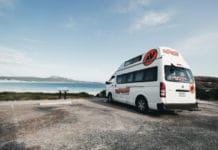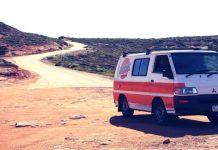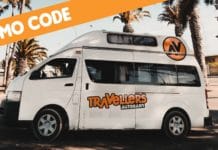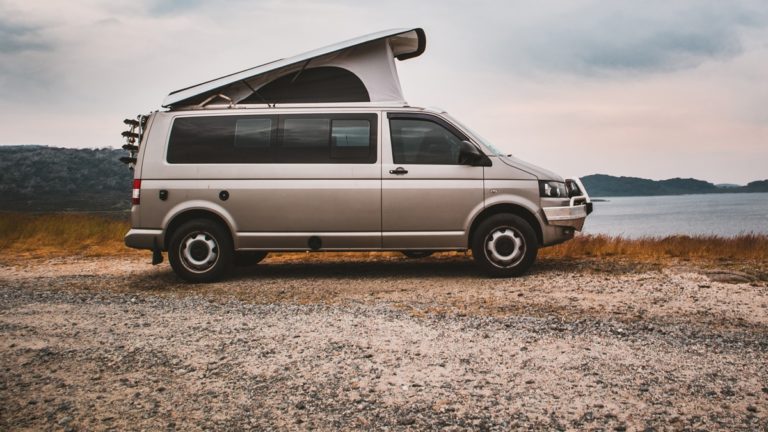
Travelling New Zealand by campervan is one of the best ways to explore this stunning country. It gives you the freedom to go where you want, sleep almost anywhere, and experience nature up close — all while saving on accommodation.
Here’s our updated 2025 guide to renting a campervan in NZ, with tips to save money, the best companies, and what to expect.
Table of Contents
Why rent a campervan in New Zealand?
New Zealand is made for road trips. Renting a campervan lets you:
- Flexibly adjust your itinerary on the go
- Combine transport + accommodation
- Visit remote regions without relying on buses
- Wake up in the middle of nature
Another alternative is to rent a car and stay in a hotel. This requires you to carefully plan your trip from the start to ensure you find accommodation at each stage (beware of isolated regions and summer periods where accommodation can be fully booked several weeks in advance).
How to Pay Less for your Campervan rental in New Zealand?
One of the best ways to reduce the price of a campervan or motorhome rental is to use a comparator. Online comparison tools offer advantageous rates and allow you to benefit from all the best deals.
Use a price comparison tool
As an agent, MotorHome Republic has discounted rates from various vehicle suppliers. So you will pay less for a rental than if you went directly to the site of a rental company. On average a rental company manages to put only about 30% of its vehicles on the roads, so for the remaining 70%, they need agents to help to rent them, hence reduced rates.
You also have a section dedicated to current promotional offers. So if you are a little flexible on your dates and/or cities of departure and arrival, do not hesitate to consult this page: Motorhome Republic – Special offers
Get 5% off your campervan rental with Travellers Autobarn
To benefit from the offer, all you have to do is enter the promo code ‘GuideEN’ on their website!
🚐 5% discount on your campervan rental
Hire a campervan and benefit from a 5% discount thanks to our promo code with Travellers Autobarn: GuideEN.
NB: You have to make a reservation of at least 10 days to take advantage of this promotion. The discount applies to the daily rate. Insurance and equipment are excluded. The offer is only valid for bookings made directly on the Travellers Autobarn website.
Tips to save money on your rental
📆 Travel off-season
The peak travel season in New Zealand is from November – February as well as school holidays and long weekends. During these periods’ prices increase and instead of paying $30 NZD per day during the low season, you will be paying up to $100 NZD for the exact same vehicle.
🚐 The type of vehicle
The newer the vehicle and the better it is equipped, the more you have to pay. If you want a vehicle that is fully sel-sufficient, known as self-contained vehicles, with a shower, toilet and kitchen built-in, then you will be paying a lot more than for a basic campervan setup. Occasionally it is more cost-effective to hire a basic campervan in New Zealand and pay $30 – 45 NZD per night for campsites.
⏰ Rental Duration
The longer you hire a campervan in New Zealand, the cheaper the daily rate becomes. Usually suppliers set different levels; +7days, +14days, +21days, +30days.. For example, if you are planning to do 2 rentals at 2 different locations.
📆 Book in advance
As the plane tickets, the fares vary according to availability. So when there are very few vehicles available, prices go up. It is therefore strongly recommended to book in advance to benefit from the best rates. The earlier you book the cheaper it is.
🗺 Choose cities of departure and arrival wisely
In New Zealand there are two main cities: Auckland and Christchurch. In Auckland and Christchurch, you’ll find lots of campervan hire companies at cheaper prices than anywhere else in New Zealand. We recommend to not rent your camper in towns like Queenstown, Picton and Dunedin as their rates are relatively higher. If you want to do a one-way road trip between Christchurch and Auckland keep in mind that it’s cheaper to hire a van in Christchurch due to most of the tourists arriving in Auckland New Zealand. Also note that companies charge extra fees for one-way rentals.
🛳 Price of the Ferry
With some rental companies, the use of ferries is allowed. This can be more convenient and sometimes is even cheaper. Check prices on Interislander: www.interislander.co.nz
📑 Choosing the right insurance and equipment options
It is very important to budget for insurance. The first price displayed on the sites when you initially search only includes so-called “standard” insurance. This is free – and compulsory. It corresponds to third party insurance, i.e. it will cover bodily injury (only) inflicted on a third party in the event of an accident. If you wish to take out “full” insurance so as not to risk losing your deposit (between 2,500 NZD and 7,500 NZD), you will have to budget for between 25 and 50 NZD per day in addition to the price of the vehicle.
The equipment is extra (camping table & chairs, GPS, child seats, etc.). Take this into account when calculating your rental budget.
What Type of Campervan Should You Choose in New Zealand?
Choosing the right campervan is key to having a smooth and comfortable road trip in New Zealand. The best option depends on your budget, travel style, and how much comfort or space you want.
Campervan Categories
When comparing campervans, you’ll usually choose between the following models:
- Minivan – Budget-friendly and compact, ideal for 1–2 travellers
- Low-top campervan – Basic setup with bed and kitchenware, not suitable for standing inside
- Hitop campervan (raised roof) – More space to stand and cook, often includes fridge & sink
- Motorhome – Fully equipped with shower, toilet, and kitchen; great for families or full comfort
👉 Use a comparison site like Motorhome Republic to filter by number of travellers, vehicle type, and features — it’s a great time-saver!
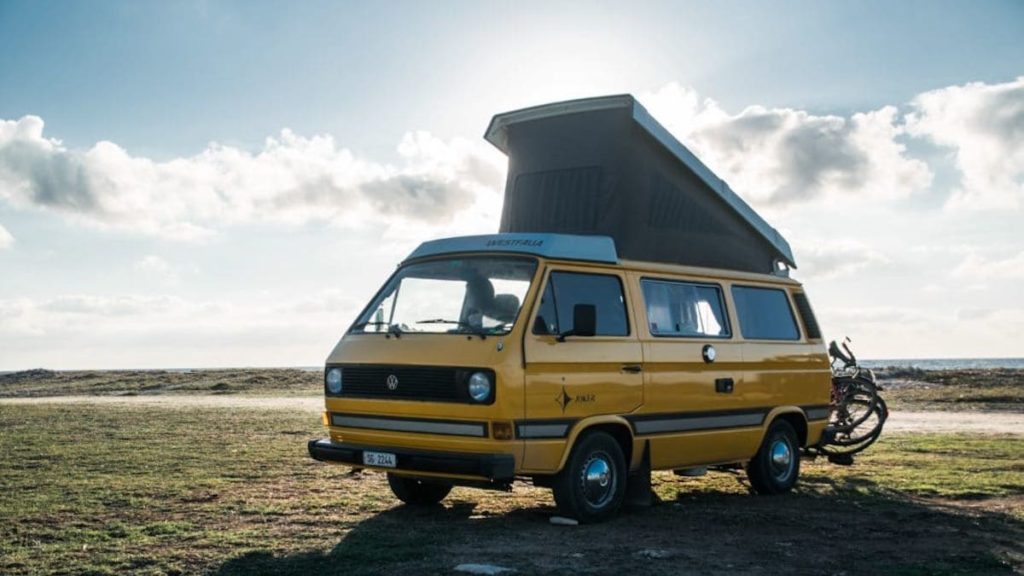
Campervan Equipment & Comfort
All campervans come with the essentials: at least one bed, cooking equipment (pots, pans, utensils), and basic storage.
Depending on the model, you may also find:
- Sink and freshwater tank
- Fridge and/or microwave
- Dry toilet or full bathroom (in self-contained vans)
- Heating or air conditioning (usually in the driver’s cabin only)
What Is a “Self-Contained” Campervan?
A self-contained campervan is certified to camp in designated freedom camping areas. It must include:
- A freshwater tank (for drinking and washing)
- A sink
- A grey water tank (to collect used water)
- A sealed drain
- A rubbish bin with lid
- A toilet (portable or fixed)
Self-contained vehicles give you access to more free camping spots, especially in rural or coastal regions — making them a smart choice for budget-conscious travellers.
The rental companies
There are many companies to choose from for your campervan hire in New Zealand. Most are located in Auckland and Christchurch. Here are the main rental companies :
- Premium Range: Britz, Apollo
- Mid-range: Travelers Autobarn, Jucy rentals, Cheapa Campa, Mighty, Camperman, Wendekreisen, Freedom Campers
- Budget campers: Lucky Rentals, Hippie Camper, Spaceships, Happy Campers, Budget Campers
Also, be aware that it is quite rare that the agencies have more than 2 or 3 depots where you can pick-up or drop-off your rental. Generally, the rental companies are located in Auckland and Christchurch. You should, therefore, avoid choosing routes for the departure or arrival of small towns such as Dunedin, Queenstown or Wellington.
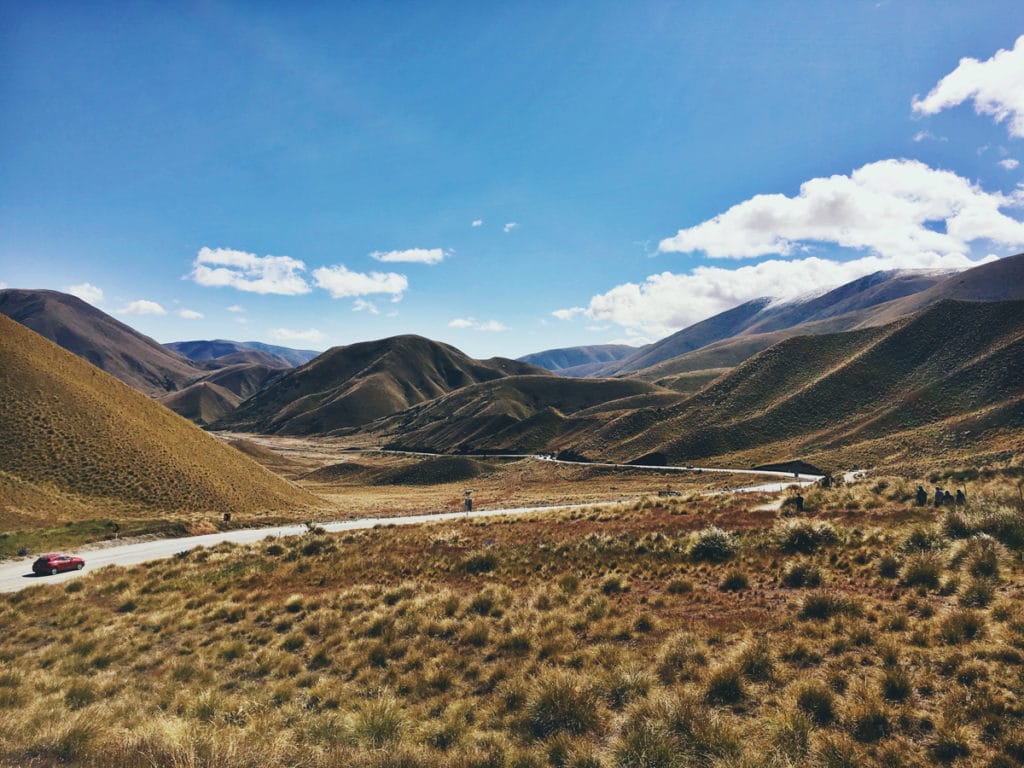
Insurance & Bond for rentals
Insurance of your rental vehicle is essential to avoid unpleasant surprises. Admittedly, this is not a very sexy subject, but once you understand how it works you can save a lot of money and avoid big problems! To summarise your options in the simplest way, remember that you have 4 options:
Standard insurance
This type of insurance does not pay out. In this case, so-called “standard” insurance is included in the price of the vehicle (compulsory) but you must leave a deposit with the rental company ($ 2,500 for a small van up to $ 7,500 for a motorhome). This is third party insurance, allowing you to be covered if you ever cause damage to other people. But in case of vehicle damage, you will not be covered. So in the event of an accident, the rental company will use part or all of your deposit to cover the repairs.
Credit Card Insurance
Ask your bank, sometimes credit cards offer insurance on car rental. By cons check the type of vehicle supported. Very often they only cover cars (not vans or motorhomes). If ever you are covered, it is not necessarily necessary to take out additional insurance. On the other hand, you will still have to advance the deposit to the renter, and from experience, it is generally complicated and long to get reimbursed.
Rental insurance from the rental agency
All rental companies offer different types of insurance. The advantage of taking out their insurance is that you can reduce your deposit as much as possible (sometimes up to 0). For so-called “full” insurance, count at least 25 NZD per day (in addition to the price of the vehicle), up to 60 NZD for a large motorhome. On the other hand, read the conditions of cover carefully because unfortunately, most rental companies do not cover certain types of accidents. For example, it is rare for a rental company to cover accidents during night driving, when you roll over without any other vehicle involved, or if you damage the rocker panel, the roof, the windshield and the tires.
Private insurance
Most of the time private insurance is cheaper than more comprehensive insurance. The only drawback is that you still have to advance the deposit to the rental company. Because in the event of an accident, the rental company will use the deposit to pay for repairs. In parallel, you will have to file a claim to the insurance company to get reimbursed. There are many companies that offer this type of service and they are very effective (online complaints, short repayment periods, etc.). There are many private insurance providers, including TripCover and RentalCover. This coverage can be used for both car rentals and campervan/motorhome rentals.
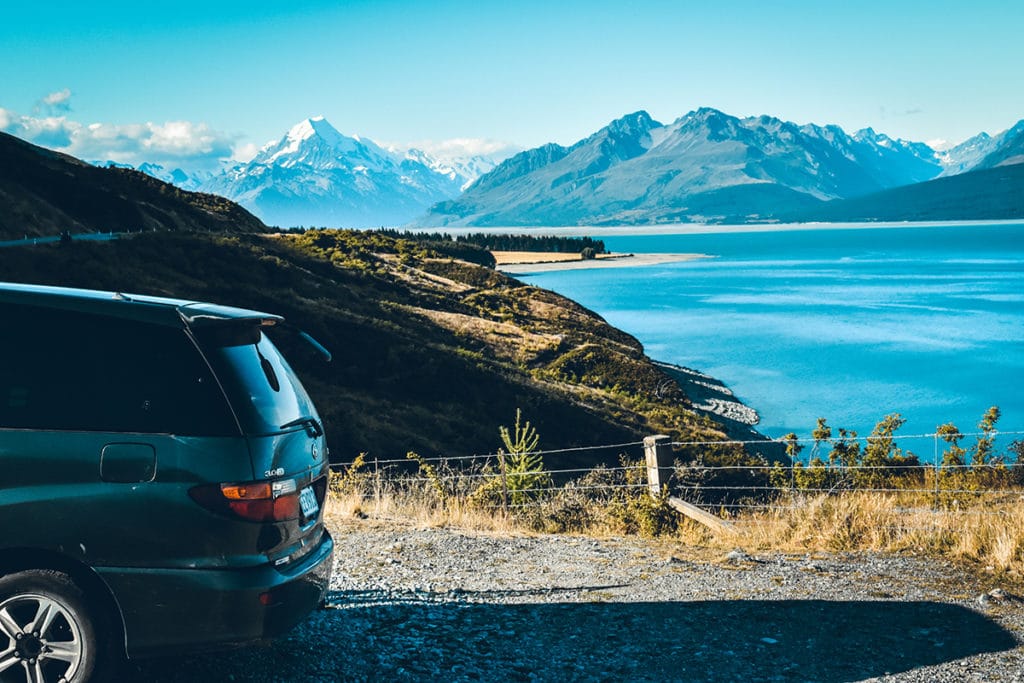
What budget should you plan for a Road Trip in NZ?
Even if the cost of living is quite similar to our European countries, gasoline and the rental of the vehicle (if necessary) will represent a significant part of your budget. Activities and campsites can also be quite expensive.
Here is an estimate of the average budget to plan for 3 weeks of a road trip in a campervan, sleeping mainly in free camps:
- Hire a Campervan (self-contained) in New Zealand with full insurance: $3000
- Fuel: $1,000 ($2 per liter)
- Ferry: $300 per crossing
- Food: $400
- Accommodation: $100 (Camping: up to $25 the campsite managed by the DOC or hostel: up to $30)
- Activities: $800
- Showers: $100 ($5 per shower)
TOTAL: 5,600 NZD, or 2,800 NZD per person
Where to sleep with a campervan in New Zealand?
There is strict legislation on camping in New Zealand.
If you want to sleep on free campsites, you must have a “self contained” or “self sufficient” vehicle. The van must not rely on external resources and must be able to contain its waste for at least 3 days to qualify as “self-sufficient”. Self-contained vehicles can be recognised by the blue sticker on their windscreens. Most of these are motorhomes.
If you hire or buy a small vehicle that is not self-contained, you will have to spend the nights at paying campsites.
⚠️ Attention: Wild camping is illegal in New Zealand.
Advice for driving in New Zealand
New Zealand as a country is particularly well-suited to motorhome/van travel. Here are a few tips for driving smoothly in New Zealand:
- Driving is on the left-hand side of the road.
- Speed limits are regulated. On main roads, the speed limit is generally 100 km/h.
- The roads are winding (South Island), so drive with caution and allow for a longer journey than indicated on your GPS!
FAQ
The main cities of the country (Auckland and Wellington) are located on the North Island. It is for this reason that the majority of the Maori population live there. On this part of the country you can see its numerous volcanoes and its magnificent coasts. There are also many small islands to visit around.
The South Island is wilder. It is a great place to hike and discover the local flora and fauna. The South Island is interesting to visit for its landscapes (mountains, fjords, beaches …)
How long to plan to visit the North Island? The North Island can be visited between 15 and 25 days.
How long to plan to visit the South Island? To visit the South Island it takes at least 2 weeks with stops of around 2 days.
Wild camping is prohibited in New Zealand, there are many signs ‘no overnight camping’ indicating it. The authorized areas are rare and limited to “self-contained” vehicles (i.e. self-sufficient). This type of vehicle also gives access to free campsites and DOC (Department of Conservation) campsites. Campervans that are not ‘self-contained’ must park on paid campsites.
In New Zealand the average price for a liter of petrol is 1.8NZD. Depending on the region and the type of fuel, the price per liter can vary between 1.50 and 2.05NZD. Fuel prices are generally higher on the South Island than on the North Island.
Check that your identity documents are in order. Check that you have the right license for the category of vehicle you are renting and that it is valid for the entire duration of the rental. You must also be in possession of the credit card which served you for the reservation.
Check its condition inside and out.
Outside the main elements to check are the rocker panel, the roof, the windshield, the tires and the bodywork.
Inside you need to check the condition of the equipment and whether it is functional. The items to check-in priority are the electrical equipment (microwave, refrigerator). Check that the indicators and the headlights work well.
For more details see our article on checks to perform.




















